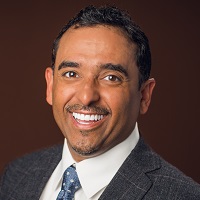Is Your Retirement in Danger of Crumbling?
Ignoring any of these five essential financial pillars could put your future at risk. Take a moment to make sure you haven't overlooked anything.


Profit and prosper with the best of Kiplinger's advice on investing, taxes, retirement, personal finance and much more. Delivered daily. Enter your email in the box and click Sign Me Up.
You are now subscribed
Your newsletter sign-up was successful
Want to add more newsletters?

Delivered daily
Kiplinger Today
Profit and prosper with the best of Kiplinger's advice on investing, taxes, retirement, personal finance and much more delivered daily. Smart money moves start here.

Sent five days a week
Kiplinger A Step Ahead
Get practical help to make better financial decisions in your everyday life, from spending to savings on top deals.

Delivered daily
Kiplinger Closing Bell
Get today's biggest financial and investing headlines delivered to your inbox every day the U.S. stock market is open.

Sent twice a week
Kiplinger Adviser Intel
Financial pros across the country share best practices and fresh tactics to preserve and grow your wealth.

Delivered weekly
Kiplinger Tax Tips
Trim your federal and state tax bills with practical tax-planning and tax-cutting strategies.

Sent twice a week
Kiplinger Retirement Tips
Your twice-a-week guide to planning and enjoying a financially secure and richly rewarding retirement

Sent bimonthly.
Kiplinger Adviser Angle
Insights for advisers, wealth managers and other financial professionals.

Sent twice a week
Kiplinger Investing Weekly
Your twice-a-week roundup of promising stocks, funds, companies and industries you should consider, ones you should avoid, and why.

Sent weekly for six weeks
Kiplinger Invest for Retirement
Your step-by-step six-part series on how to invest for retirement, from devising a successful strategy to exactly which investments to choose.
Ideally, retirement should come about after years of careful planning and preparation.
But it doesn’t always happen that way.
Instead, people arrive at a magical age that just seems to be the right moment. Or they tire of their toxic boss or their stressful job. Without fanfare, they say farewell to their working years, and just like that, they’re retired.
From just $107.88 $24.99 for Kiplinger Personal Finance
Become a smarter, better informed investor. Subscribe from just $107.88 $24.99, plus get up to 4 Special Issues

Sign up for Kiplinger’s Free Newsletters
Profit and prosper with the best of expert advice on investing, taxes, retirement, personal finance and more - straight to your e-mail.
Profit and prosper with the best of expert advice - straight to your e-mail.
Such an unplanned and unfocused approach is ripe for miscues. Without careful planning, retirement can go wrong in any number of ways, possibly forcing the new retiree to rejoin the workforce when their bank account is depleted.
Let’s look at five areas that are laden with the potential for missteps:
1. Income planning
If all goes well, your retirement will last two to three decades, so it’s critical to understand where your money will come from during those years. Unfortunately, many people don’t know exactly where their income will come from in retirement.
A good example is how they approach Social Security. There are more than 500 ways to calculate when and how you should file for Social Security, so it’s easy to go astray. Yet many people file without carefully studying which option works best for them.
Similarly, people who have pensions sometimes fail to maximize their money. Often pensions come with choices. As an example, a pensioner might take a reduced monthly amount in exchange for their spouse being able to continue to receive the pension after the pensioner dies.
Determining the right move with Social Security, pensions or other retirement income sources is not always simple, but it’s worth the effort.
2. Risk management
Ask people how much risk they have in their portfolio, and their response doesn’t always match reality. In truth, some of them simply don’t know — even when they think they do.
This is because many people save for retirement through a 401(k) account at work or through an IRA they set up on their own. They may have established these accounts decades ago when they were in their 20s, 30s or 40s. Their risk mindset was different then and they chose investment options that are no longer appropriate as they get closer to retirement.
In your younger years, you aren’t as concerned about a temporary down market because you still have years or decades to recover from losses. That’s no longer true when you’re nearing retirement.
It’s important to analyze your portfolio (or have someone analyze it for you) to make sure your risk is appropriate for your current needs and your comfort level. Financial professionals typically have sophisticated tools that can help you do that.
3. Growth management
Even when you dial back your risk, there is still an opportunity to grow your money. Ideally, you should have a diversified plan that creates different purposes for different dollars.
Let’s say you need to generate $50,000 a year from your retirement savings to maintain your lifestyle and you have saved $1 million. You could take $500,000 of that $1 million, and if it grew at a rate of 7% annually, this pot of money should last you about 18 years.*
With your financial needs taken care of for nearly two decades, you could take another pot of money and invest it more aggressively because you have a longer time horizon and more room to recover from losses.
Ultimately, decisions about growing your money in retirement vary by individual and depend on factors such as your risk tolerance, market conditions, potential health issues and how much you have saved. That’s why you need advice specific to your situation.
4. Tax management
We see people routinely make the mistake of thinking they will be in a lower tax bracket when they retire. This isn’t always the case. Many retirees remain in the same tax bracket — and some move into an even higher bracket.
Looking for expert tips to grow and preserve your wealth? Sign up for Building Wealth, our free, twice-weekly newsletter.
One reason is they may no longer have the same deductions that helped reduce their taxable income when they were younger. For example, the interest on a mortgage can be deducted but many retirees have paid off their mortgages.
One thing I like to do with clients is take a snapshot of where they are today in terms of tax brackets and, based on their sources of retirement income, project their tax bracket in retirement. If it doesn’t look like you will be in a lower tax bracket, you can take steps to future-proof your tax liability, such as making Roth conversions.
5. Health care planning
Perhaps you’ve heard some variation of this: When we are young, we sacrifice our health to gain wealth. When we are old, we sacrifice our wealth to regain our health.
Ideally, you don’t want to get caught in either scenario. We need to take better care of ourselves while we are still working — eat healthy, exercise, get plenty of sleep — and we also should have money set aside for unforeseen health care expenses when we are older.
Once again, careful financial planning comes into play. Here’s just one example: Retirees can inadvertently increase the amount they pay for Medicare. Medicare has something called the income-related monthly adjustment amount (IRMAA), which increases the Medicare Part B and Part D premiums for people with higher incomes.
If you aren’t vigilant, one more withdrawal from a retirement account could bump you above an income threshold and raise your Medicare costs.
Although people often treat income planning, risk management, growth management, tax management and health care planning as separate things, they actually work together. Each can affect the other, such as how withdrawing too much from the income side might increase your Medicare bill.
But if you take into consideration how the five areas are interwoven, then you have a greater chance of getting to where you want to be in retirement — with a lot less drama.
Yes, there’s a lot to think about here, which is why it’s wise to seek assistance from a financial professional who can help you determine what’s right for you and also help you avoid costly and sometimes irreversible mistakes.
* Hypothetical return. Past performance does not indicate future performance.
Ronnie Blair contributed to this article.
The appearances in Kiplinger were obtained through a PR program. The columnist received assistance from a public relations firm in preparing this piece for submission to Kiplinger.com. Kiplinger was not compensated in any way.
Advisory Services offered through M2 Financial LLC, a Registered Investment Adviser.
Related Content
- Five Signs It's Time to Retire in 2025
- How to Avoid These 10 Retirement Planning Mistakes
- When To Take Social Security Payments: Your Age Matters
- Risk in Retirement: What’s the Right Level for You?
- How You Can Tackle Health Care Costs in Retirement
Profit and prosper with the best of Kiplinger's advice on investing, taxes, retirement, personal finance and much more. Delivered daily. Enter your email in the box and click Sign Me Up.

Manuel “Manny” Negron is the founder of GenWealth Advisory Group. Manny has more than 18 years of experience in financial services. He founded GenWealth Advisory Group in 2007 to help those in or nearing retirement with insurance, retirement income planning and wealth management. Manny’s knowledge and financial insights have been featured on CNBC, USA Today and more. He is a native of Puerto Rico but has lived in Utah since the mid-1980s. He and his wife, Becky, have three children, Easton, Ainsley and Lincoln.
-
 Quiz: Do You Know How to Avoid the "Medigap Trap?"
Quiz: Do You Know How to Avoid the "Medigap Trap?"Quiz Test your basic knowledge of the "Medigap Trap" in our quick quiz.
-
 5 Top Tax-Efficient Mutual Funds for Smarter Investing
5 Top Tax-Efficient Mutual Funds for Smarter InvestingMutual funds are many things, but "tax-friendly" usually isn't one of them. These are the exceptions.
-
 AI Sparks Existential Crisis for Software Stocks
AI Sparks Existential Crisis for Software StocksThe Kiplinger Letter Fears that SaaS subscription software could be rendered obsolete by artificial intelligence make investors jittery.
-
 Quiz: Do You Know How to Avoid the 'Medigap Trap?'
Quiz: Do You Know How to Avoid the 'Medigap Trap?'Quiz Test your basic knowledge of the "Medigap Trap" in our quick quiz.
-
 5 Top Tax-Efficient Mutual Funds for Smarter Investing
5 Top Tax-Efficient Mutual Funds for Smarter InvestingMutual funds are many things, but "tax-friendly" usually isn't one of them. These are the exceptions.
-
 Why Invest In Mutual Funds When ETFs Exist?
Why Invest In Mutual Funds When ETFs Exist?Exchange-traded funds are cheaper, more tax-efficient and more flexible. But don't put mutual funds out to pasture quite yet.
-
 We Retired at 62 With $6.1 Million. My Wife Wants to Make Large Donations, but I Want to Travel and Buy a Lake House.
We Retired at 62 With $6.1 Million. My Wife Wants to Make Large Donations, but I Want to Travel and Buy a Lake House.We are 62 and finally retired after decades of hard work. I see the lakehouse as an investment in our happiness.
-
 Social Security Break-Even Math Is Helpful, But Don't Let It Dictate When You'll File
Social Security Break-Even Math Is Helpful, But Don't Let It Dictate When You'll FileYour Social Security break-even age tells you how long you'd need to live for delaying to pay off, but shouldn't be the sole basis for deciding when to claim.
-
 I'm an Opportunity Zone Pro: This Is How to Deliver Roth-Like Tax-Free Growth (Without Contribution Limits)
I'm an Opportunity Zone Pro: This Is How to Deliver Roth-Like Tax-Free Growth (Without Contribution Limits)Investors who combine Roth IRAs, the gold standard of tax-free savings, with qualified opportunity funds could enjoy decades of tax-free growth.
-
 One of the Most Powerful Wealth-Building Moves a Woman Can Make: A Midcareer Pivot
One of the Most Powerful Wealth-Building Moves a Woman Can Make: A Midcareer PivotIf it feels like you can't sustain what you're doing for the next 20 years, it's time for an honest look at what's draining you and what energizes you.
-
 Stocks Make More Big Up and Down Moves: Stock Market Today
Stocks Make More Big Up and Down Moves: Stock Market TodayThe impact of revolutionary technology has replaced world-changing trade policy as the major variable for markets, with mixed results for sectors and stocks.